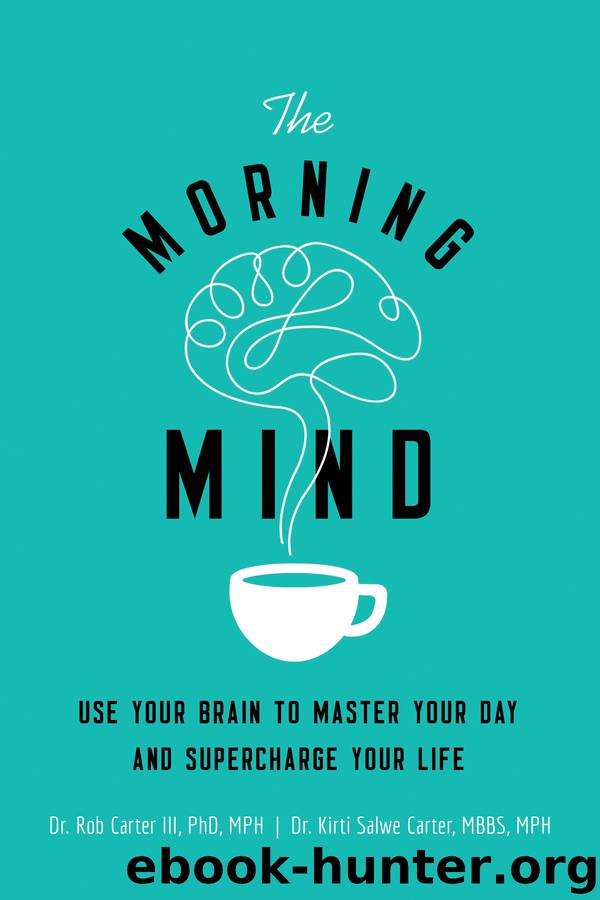The Morning Mind by Dr. Robert Carter III

Author:Dr. Robert Carter III
Language: eng
Format: epub, mobi
Publisher: AMACOM
Published: 2018-11-14T16:00:00+00:00
Chapter 10
Creativity with Writing
“Either write something worth reading or do something worth writing.”
—BENJAMIN FRANKLIN
WAKING UP AFTER a good night’s sleep, your body has replenished itself, healed, and performed all the necessary tasks it needs for you to start your day. It is no different for the brain. Upon waking, synaptic connections are stronger than when you fell asleep the night before, as detected by MRI scans.1 This specifically effects creativity, because the many parts of the brain associated with creativity are stronger in the morning. Research studies have been infusing a conditioned scent, such as vanilla, to help stimulate the creative centers in the Wizard brain and enable enhanced creative performance. While this is not a black-and-white rule, for many people, morning is the best time for creativity, and for others enhancing the environment may help improve their creative activities.
There are many documented health benefits to writing. Incorporating just five minutes of putting pen to paper in the morning can have a hugely beneficial impact on your day—fewer visits to the doctor, reduced blood pressure, improved mood/affect, and feeling of greater psychological well-being are just a few of the documented benefits. Neuropsychologist Jenni Ogden posits the benefits of expressing oneself creatively in writing, suggesting that writing and reading something someone enjoys can slow down the brain’s aging process.2
Another great way to start your day with writing is setting goals, as we have seen with creating more self-discipline and forming empowering habits. One study found that people who write about reaching their future goals on a regular basis are happier and have reduced stress levels.3
Another form of early morning writing is journaling, expressing how you feel about certain issues. Another study documented people willingly writing about traumatic events. It showed that six months after they started writing, people experienced emotional benefits because describing the trauma made them better equipped to deal with it, even if they did not talk to anyone about it.4, 5
Download
This site does not store any files on its server. We only index and link to content provided by other sites. Please contact the content providers to delete copyright contents if any and email us, we'll remove relevant links or contents immediately.
Rewire Your Anxious Brain by Catherine M. Pittman(18620)
Talking to Strangers by Malcolm Gladwell(13332)
The Art of Thinking Clearly by Rolf Dobelli(10381)
Mindhunter: Inside the FBI's Elite Serial Crime Unit by John E. Douglas & Mark Olshaker(9298)
Becoming Supernatural by Dr. Joe Dispenza(8186)
Change Your Questions, Change Your Life by Marilee Adams(7718)
Nudge - Improving Decisions about Health, Wealth, and Happiness by Thaler Sunstein(7678)
The Road Less Traveled by M. Scott Peck(7574)
The Lost Art of Listening by Michael P. Nichols(7478)
Mastermind: How to Think Like Sherlock Holmes by Maria Konnikova(7304)
Enlightenment Now: The Case for Reason, Science, Humanism, and Progress by Steven Pinker(7288)
Win Bigly by Scott Adams(7171)
The Way of Zen by Alan W. Watts(6578)
Daring Greatly by Brene Brown(6487)
Big Magic: Creative Living Beyond Fear by Elizabeth Gilbert(5726)
Grit by Angela Duckworth(5577)
Ego Is the Enemy by Ryan Holiday(5392)
Men In Love by Nancy Friday(5218)
The Laws of Human Nature by Robert Greene(5136)
